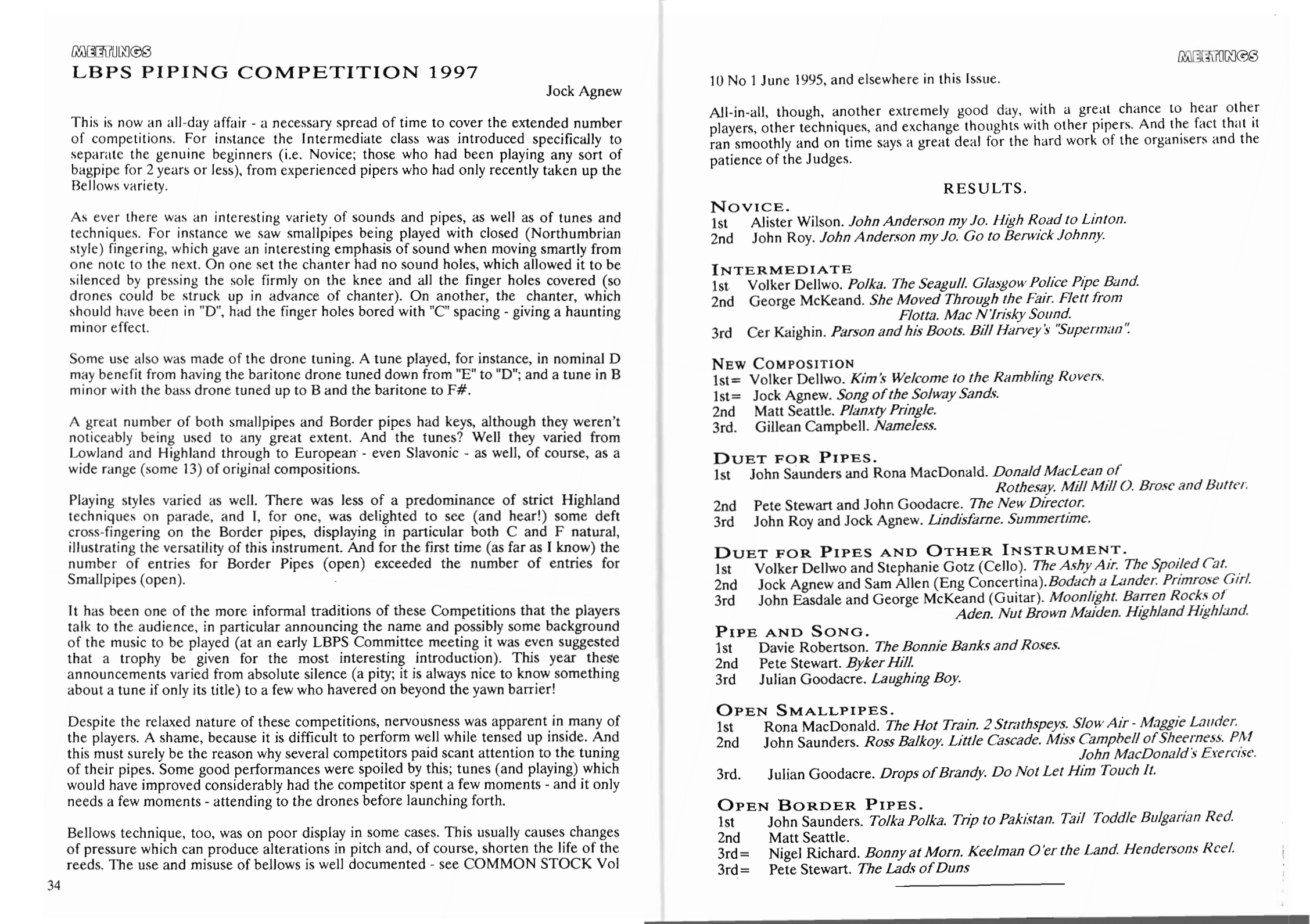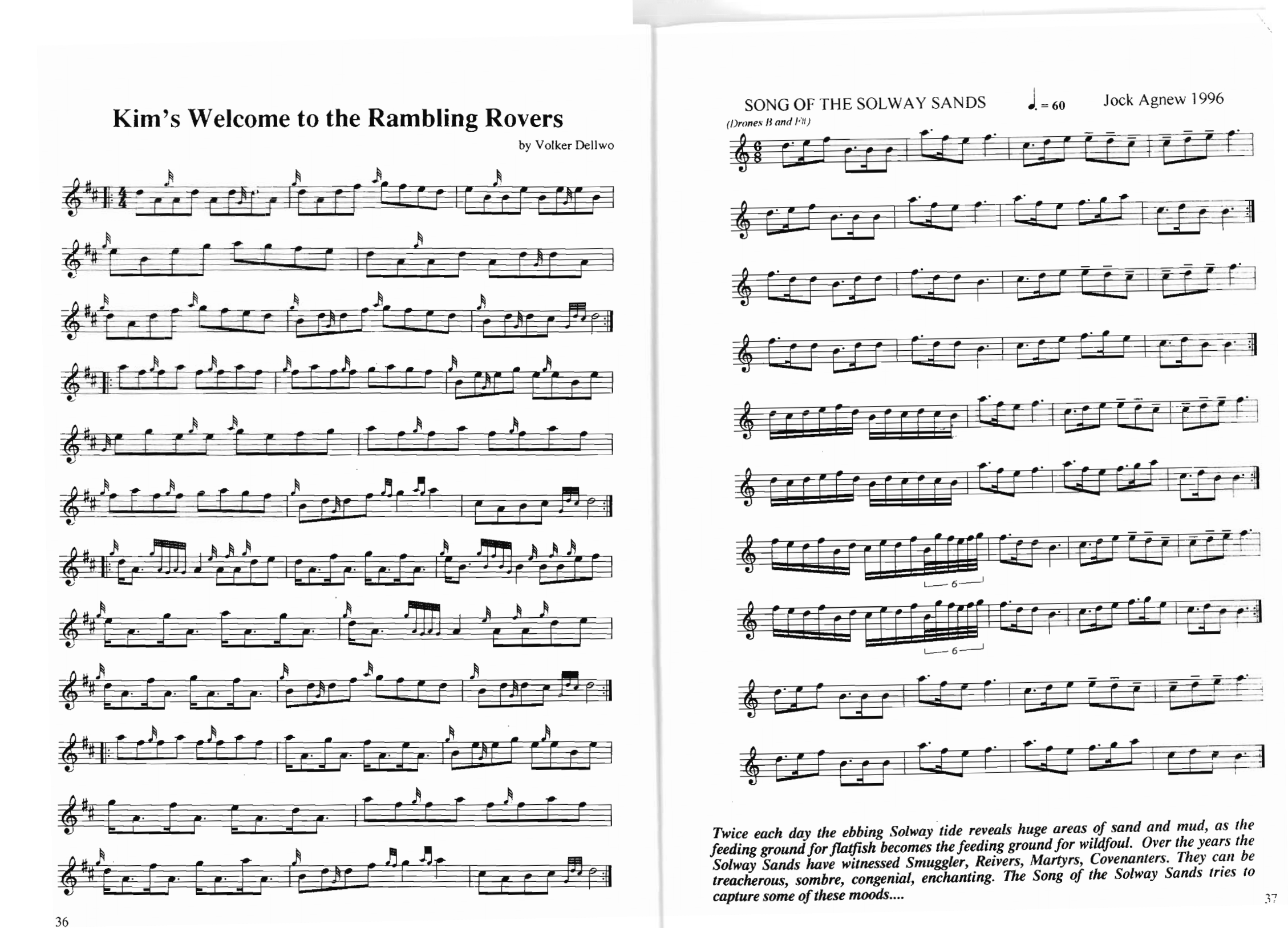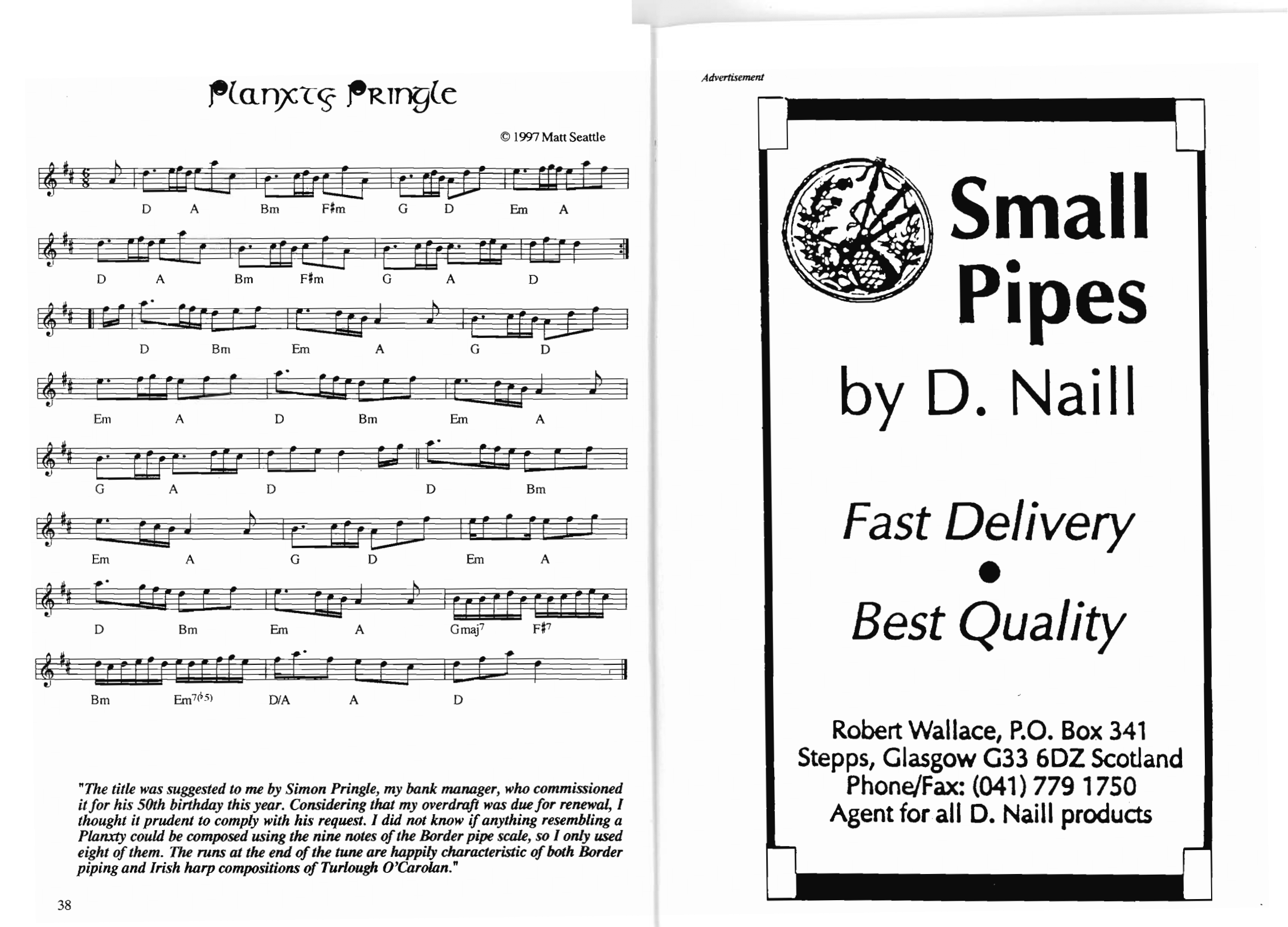LBPS COMPETITION 1997



Jock Agnew
This is now an all-day affair - a necessary spread of time to cover the extended number of competitions. For instance the Intermediate class was introduced specifically to separate the genuine beginners (i.e. Novice; those who had been playing any sort of bagpipe for 2 years or less), from experienced pipers who had only recently taken up the Bellows variety.
As ever there was an interesting variety of sounds and pipes, as well as of tunes and techniques. For instance we saw smallpipes being played with closed (Northumbrian style) fingering, which gave an interesting emphasis of sound when moving smartly from one note to the next. On one set the chanter had no sound holes, which allowed it to be silenced by pressing the sole firmly on the knee and all the finger holes covered (so drones could be struck up in advance of chanter). On another, the chanter, which should have been in ‘D’, had the finger holes bored with ‘C’ spacing - giving a haunting minor effect.
Some use also was made of the drone tuning. A tune played, for instance, in nominal D may benefit from having the baritone drone tuned down from ‘E’ to ‘D’; and a tune in B minor with the bass drone tuned up to B and the baritone to F#. A great number of both smallpipes and Border pipes had keys, although they weren’t noticeably being used to any great extent. And the tunes? Well they varied from Lowland and Highland through to European - even Slavonic - as well, of course, as a wide range (some 13) of original compositions. Playing styles varied as well. There was less of a predominance of strict Highland techniques on parade, and I, for one, was delighted to see (and hear!) some deft crossfingering on the Border pipes, displaying in particular both C and F natural, illustrating the versatility of this instrument. And for the first time (as far as ] know) the number of entries for Border Pipes (open) exceeded the number of entries for Smallpipes (open).
It has been one of the more informal traditions of these Competitions that the players talk to the audience, in particular announcing the name and possibly some background of the music to be played (at an early LBPS Committee meeting it was even suggested that a trophy be given for the most interesting introduction). This year these announcements varied from absolute silence (a pity; it is always nice to know something about a tune if only its title) to a few who havered on beyond the yawn barrier! Despite the relaxed nature of these competitions, nervousness was apparent in many of the players. A shame, because it is difficult to perform well while tensed up inside. And this must surely be the reason why several competitors paid scant attention to the tuning of their pipes. Some good performances were spoiled by this; tunes (and playing) which would have improved considerably had the competitor spent a few moments - and it only needs a few moments - attending to the drones before launching forth.
Bellows technique, too, was on poor display in some cases. This usually causes changes of pressure which can produce alterations in pitch and, of course, shorten the life of the reeds. The use and misuse of bellows is well documented - see COMMON STOCK Vol 10 No 1 June 1995, and elsewhere in this Issue. All-in-all, though, another extremely good day, with a great chance to hear other players, other techniques, and exchange thoughts with other pipers. And the fact that it ran smoothly and on time says a great deal for the hard work of the organisers and the patience of the Judges.
RESULTS.
NOVICE.
Ist Alister Wilson. John Anderson my Jo. High Road to Linton.
2nd John Roy. John Anderson my Jo. Go to Berwick Johnny.
INTERMEDIATE
Ist Volker Dellwo. Polka. The Seagull. Glasgow Police Pipe Band.
2nd George McKeand. She Moved Through the Fair. Flett from Flotta. Mac N'trisky Sound.
3rd Cer Kaighin. Parson and his Boots. Bill Harvey's “Superman”.
NEW COMPOSITION
1st= Volker Dellwo. Kim's Welcome to the Rambling Rovers.
1st= Jock Agnew. Song of the Solway Sands.
2nd Matt Seattle. Planxty Pringle.
3rd. Gillean Campbell. Nameless.
DUET FOR PIPES.
1st John Saunders and Rona MacDonald. D. MacLean of Rothesay. Mill O. Brose & Butter.
2nd Pete Stewart and John Goodacre. The New Director.
3rd John Roy and Jock Agnew. Lindisfarne. Summertime.
DUET FOR PIPES AND OTHER INSTRUMENT.
1st Volker Dellwo and Stephanie Gotz (Cello). The Ashy Air. The Spoiled Cat.
2nd Jock Agnew and Sam Allen (Eng Concertina). Bodach a Lander. Primrose Girl. 3rd John Easdale and George McKeand (Guitar). Moonlight. Barren Rocks of Aden. Nut Brown Maiden. Highland Highland.
PIPE AND SONG.
1st Davie Robertson. The Bonnie Banks and Roses.
2nd Pete Stewart. Byker Hill.
3rd Julian Goodacre. Laughing Boy.
OPEN SMALLPIPES.
1st Rona MacDonald. The Hot Train. 2 Strathspeys. Slow Arr - Maggie Lauder. 2nd John Saunders. Ross Balkoy. Little Cascade. Miss Campbell of Sheerness. PM John MacDonald's Exercise.
3rd. Julian Goodacre. Drops of Brandy. Do Not Let Him Touch It.
OPEN BORDER PIPES.
1st John Saunders. Tolka Polka. Trip to Pakistan. Tail Toddle Bulgarian Red. 2nd Matt Seattle.
3rd= Nigel Richard. Bonny at Morn. Keeiman O'er the Land. Hendersons Reel.
3rd= Pete Stewart. The Lads of Duns
